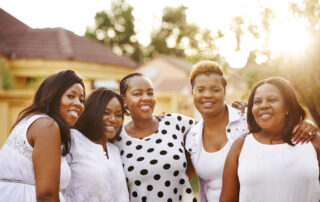Publications
Violence Against Black Women – Many Types, Far-reaching Effects
Black women disproportionately experience violence at home, at school, on the job, and in their neighborhoods. The Status of Black Women in the United States details these many types of violence. Black women face high rates of intimate partner violence, rape, and homicide. Black girls and women [...]
The Status of Black Women in the United States
This report aims to amplify the historical and current contributions of Black domestic workers to the broader domestic worker movement. Using available data, the report describes the experiences of millions of Black women across the United States, and offers recommendations where the opportunities for Black women can be realized.
The Impact of Equal Pay on Poverty and the Economy
DOWNLOAD REPORT Women make up almost half of the workforce, yet they continue to earn less than men on average in nearly every single occupation for which there is sufficient earnings data for both men and women to calculate an earnings ratio (Hegewisch [...]
College Students with Children: National and Regional Profiles
This report provides a national and regional profile of undergraduate college students who are raising dependent children.
The Status of Women in Florida by County: Population & Diversity
This briefing paper highlights demographic information relevant to the status of women in Florida. It explores differences between women and men on a range of variables, including age, race and ethnicity, marital status, household type, immigration status, geography, and veteran status.












